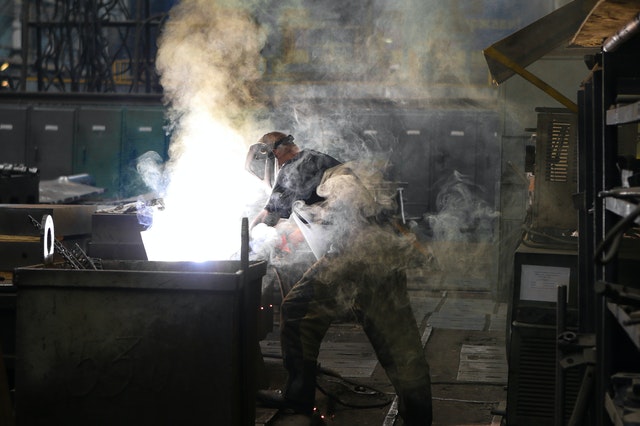
What is Sustainable Manufacturing?
Sustainable manufacturing is defined as the creation of manufactured products that use processes that minimize negative environmental impacts, conserve energy and natural resources, are safe for employees, communities, and consumers and are economically sound. The overall goal of sustainable manufacturing is to obtain a view of the whole product cycle and optimize the life-cycle of manufacturing systems, products and associated services. With this view, manufactures can not only produce more sustainable products but their manufacturing processes will become more sustainable, which increases the company’s total economic, social, and environmental benefits.
Sustainable manufacturing uses a more holistic approach that considers all life-cycle stages, from pre-manufacturing, manufacturing and use through post-use. These stages are spread across the entire supply chain with different partners managing activities at each of these stages. Thus, many players in the manufacturing process must adopt sustainable principles to ensure that higher production standards are met. To overcome this challenge, sustainable manufacturing involves these key drivers:
- Development of frameworks to manage the new generation of sustainable supply chains
- Identification of effective metrics to measure economic environmental and societal impacts at each life-cycle stage in the supply chain
- Concurrent optimization of product and supply chain designs
Sustainable manufacturing recognizes that the total lifecycle of a product, from its design, through its use to its retirement, is affected by a whole range of technical, economic, ecological and social aspects. Historically, product design has been used to ensure efficient manufacturing and market appeal, but now products must also be designed to take account of factors such as decommissioning and recycling. The holistic view of sustainable manufacturing takes the aim of adopting sustainable principles across the whole manufacturing life-cycle, and identifying all inputs and outputs for continuous improvement action.
Benefits of Sustainable Manufacturing
Many large, multinational companies are cognizant of impending overseas environmental regulations and growing consumer demand for a new generation of environmentally friendly products, and they are beginning to formulate their response. Some have embraced the notion that sustainable manufacturing techniques are a competitive weapon.
These companies are finding that sustainable manufacturing initiatives offer competitive market advantages. Manufacturers can actually save money by institutionalizing greener products and processes. Sustainable manufacturing has become not only a more responsible way for many organizations to do business, but a more profitable way as well.
With growing concerns in the world about the environmental effects of modern living practices and the role of manufactured products, the manufacturing industry is facing an escalating need to introduce sustainable manufacturing strategies. The benefits of these strategies include:
- Elimination of costly or wasteful materials
- Reduction in energy consumption and CO2 emissions
- Innovation in renewable or non-toxic materials
- Cleaner production and industrial outputs
- Optimization of supply chains and production structures
- Creation of additional product value
- Compliance with international standards
In addition to factors such as quality, cost-effectiveness and safety, sustainable manufacturing enhances product life-cycle and services. Sustainable manufacturing is the way to face future environmental and business concerns, including the escalating cost of resources such as water, energy and raw materials, and the introduction of more stringent regulations in relation to the use of these resources.
How can Beyond Smart Cities help?
Beyond Smart Cities offers manufacturers access to extensive analytical tools and established databases to create strategic solutions for sustainable manufacturing. These tools combine life-cycle assessment and supply chain optimization with material and process analysis to appropriately balance factors including greenhouse gas emissions, energy and water consumption, waste outputs and associated costs.
Beyond Smart Cities expertly guides product designers, suppliers, and manufacturers during the creation and implementation of individual and corporate sustainable policies to ensure that all stakeholders receive the best return on investment. Further, Beyond Smart Cities will assist in the documentation of sustainable practices to allow companies to follow Global Reporting Initiative protocols to gain benefits from carbon trading markets and international recognition.
Beyond Smart Cities utilizes business analysis and sustainable expertise to not only reduce a manufacturer’s environmental footprint, but also reduce energy and raw material costs, mitigate risk, minimize costs associated with future carbon or other emissions taxes, improve public image, and increase customer acceptance.
